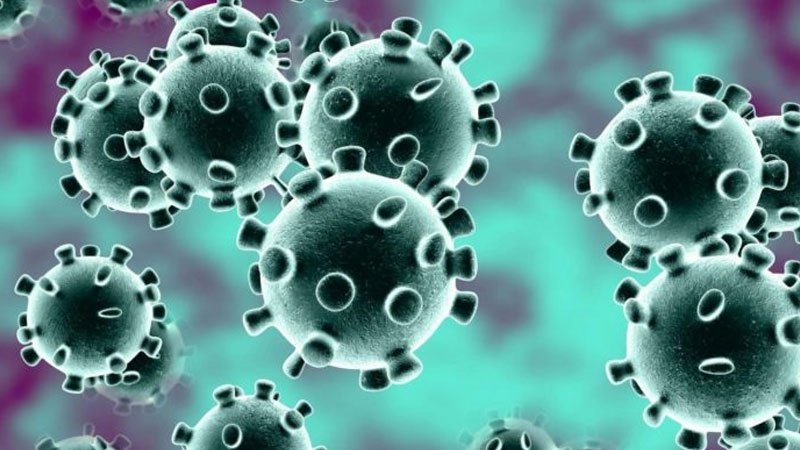UNB, Dhaka: Although Covid-19 can cause a range of symptoms for around two weeks, the type, order and progression of these indications can vary from case to case and person to person.
The type, severity, and progression of symptoms shape how the virus affects a person’s daily life. Some people may experience no symptoms at all, while others will need to seek immediate medical attention.
Two periods of symptoms
Symptoms usually begin 2 to 14 days after a person catches the virus, most commonly after four to five days.
Most people will experience mild to moderate symptoms, including flu or cold, during this period, according to the US Centers for Disease Control and Prevention (CDC).
However, studies suggest the first Covid-19 symptom to develop is likely to be fever, which is a temporary increase in body temperature and different from influenza, where the first symptom is typically a cough, according to a 2020 study in Frontiers in Public Health.
Next, Covid-19 may cause a cough, sore throat, and body aches or headaches.
The Frontiers in Public Health study suggests that Covid-19 could then cause nausea and vomiting, which would develop sooner than it would in similar respiratory infections, such as MERS or SARS.
In severe cases, Covid-19 can require hospitalisation. This typically occurs after seven days from the onset of symptoms, a 2020 study in The Lancet suggested when the delta variant was yet to emerge.
Some people will experience acute respiratory distress syndrome after nine days. This is where the lungs fail to provide the body with sufficient oxygen. Around 20% to 42% of people hospitalised with Covid-19 experience this condition, according to the CDC.
In severe cases, doctors may admit people to an intensive care unit (ICU) around 10 days after symptom onset. Around 26% to 32% of people hospitalised with Covid-19 will require treatment in an intensive care unit.
Also, Covid-19 symptoms could include tiredness, loss of taste or smell, diarrhoea and nasal congestion, according to the CDC.
Some people will experience severe symptoms, such as shortness of breath, confusion, chest pain or pressure, and difficulty moving or talking, too.
People who experience these symptoms must seek immediate medical attention.
Duration
The average recovery time was 16 days after infection; however, it will vary from case to case, according to a 2021 study in The Lancet.
Some symptoms may take longer to go away. For example, loss of taste and smell can last for weeks or months, according to the CDC.
Communicability of the virus
Most people can be around other people after 10 days since their symptoms first appeared, as long as they have not experienced fever for 24 hours and other symptoms are improving, as per the CDC.
People with severe Covid-19 symptoms or weakened immune systems may need to isolate themselves for longer. The CDC recommends up to 20 days of isolation after symptoms first occur in these cases. However, a doctor may recommend a different duration, depending on the case.
People with a positive test result but without Covid-19 symptoms are still infectious and should self-isolate for 10 days after the date of the test.
Long-term effects
Most people will experience no long-term effects from Covid-19.
However, some people may experience long Covid – also known as long-haul Covid. This is where symptoms persist for several weeks or months. The duration of time that symptoms must persist in long Covid varies.
However, the CDC says, symptoms lasting four or more weeks should constitute long Covid. It can include any Covid-19 symptoms and can occur in people who experienced mild, moderate, or severe symptoms.
Delta variant symptoms
There are many variants of SARS-CoV-2 that can cause Covid. Each variant is the result of a random mutation of the original virus.
The main variant of concern now in Bangladesh, and indeed worldwide, is the Delta variant. This variant spreads more quickly than the original virus, increasing the number of hospitalisations or deaths.
The variant is believed by the World Health Organization to be 50% more transmissible and might become the dominant form of the virus in the next few months.
Former Institute of Epidemiology, Disease Control and Research director Dr AM Zakir Hussain said, “The Delta variant of SARS-CoV-2 is very different in many ways from its earlier variants. It shows symptoms like a mild cold, runny nose and mild fever with head and body aches. The variant’s incubation period is four days – one or two days shorter than the earlier variants.”
“Delta’s rate of multiplication is faster, and volume in the nose is higher. It can directly go to the lungs. The variant’s spike is 75% efficient in sticking to its docking site in human host cells in comparison to the Alpha variant’s 50%.”
“So, the variant causes higher infections, overt manifestations and deaths. Due to similarities with common colds and fevers, patients take a relatively long time to understand if they are suffering from a seasonal cold or not and seek medical attention late. The other reason for high deaths from the variant is the paucity of ICUs. Vaccines are less effective in preventing second or third time infection from the Delta variant,” he added.
Warning signs
Mild to moderate cases of Covid-19 may not require immediate medical attention. However, some Covid-19 cases cause severe symptoms, which typically emerge after around a week. People with these symptoms must seek immediate medical attention.
It is critical to contact a health professional for symptoms that include difficulty in breathing, chest pain or pressure, confusion, difficulty in remaining conscious, discoloured skin, lips, or nails, according to the CDC.

